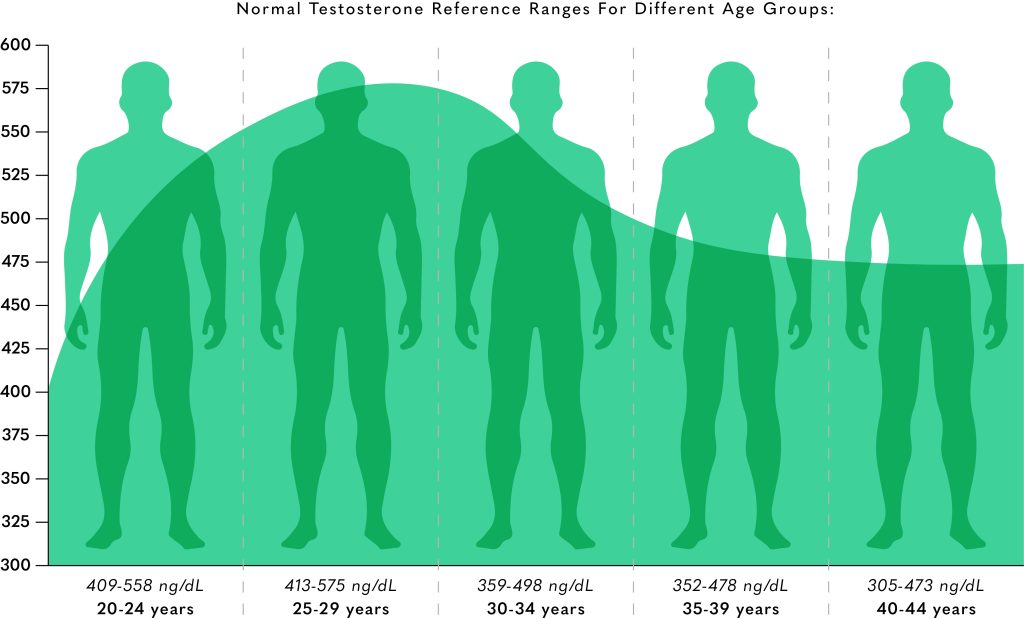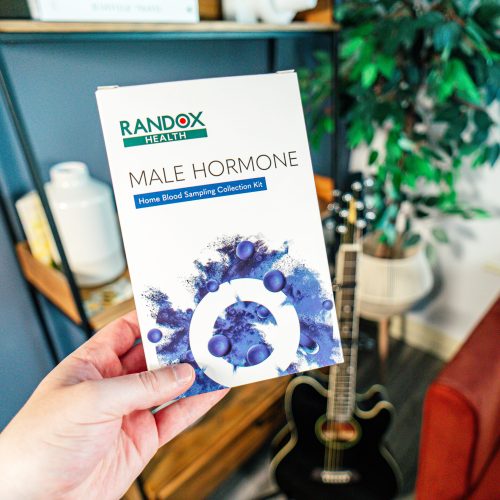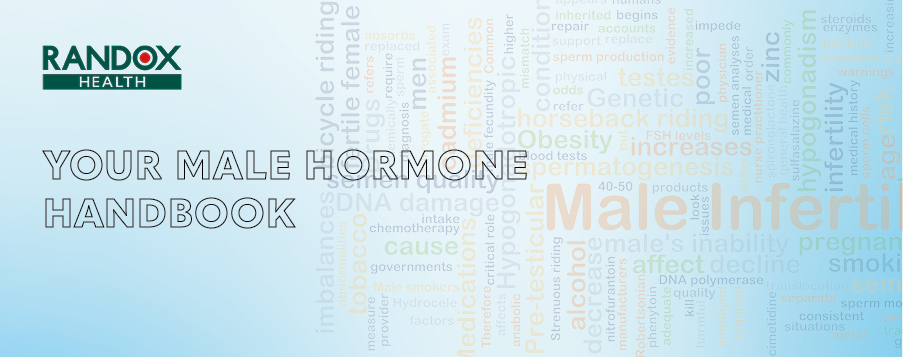10/06/2024
Hormone health is crucial to maintain the normal processes in your body. Hormones are chemical messengers which form complex, interconnected mechanisms and pathways which initiate, regulate, and inhibit a range of physiological functions.
With it being Men’s Health Week, we feel at liberty to provide men with even easier access to insights into their hormonal health. That’s why we’re providing 20% off all of our Male Health products including Male Hormone testing (read to the end to find how to get your discount).
our Male Hormone Test evaluates levels of Testosterone, the major male sex hormone, and more to provide a comprehensive view of male hormonal health. Testosterone levels naturally decrease with age.
However, it is estimated that up to 20% of young adult males (under 50) suffer from testosterone deficiency1. Low levels of testosterone can have negative effects on sexual health as well as mood, self-esteem, and nutritional status. It has also been shown that low testosterone levels increase the risk of several conditions including cardiovascular diseases, diabetes, and osteoporosis.
20% of adult males (aged under 50) suffer from testosterone deficiency.
Let’s Talk Testosterone
Each of the above aspects of our daily routine has a complicated relationship with testosterone. Low testosterone levels have been associated with symptoms of depression such as sleeplessness, increased irritability, low self-esteem, and melancholy3.
Less intuitively, the maintenance of testosterone levels is also crucial for cardiovascular and bone health. Testosterone is necessary for maintaining the correct levels of calcium ions which are involved in the regulation of heart rate4. Studies have also shown that men with low bone mineral density display lower levels of testosterone when compared to a healthy control group, suggesting testosterone plays a part in maintaining bone strength and the development of osteoporosis5. “The normal levels of testosterone vary by age. The reference ranges for different age groups are illustrated in Figure 1.

Low levels of testosterone can have negative effects on sexual health as well as mood, self-esteem, and nutritional status. It has also been shown that low testosterone levels increase the risk of several conditions including cardiovascular diseases, diabetes, and osteoporosis.
Testosterone
Mood, behaviour, and quality of life have a complicated relationship with testosterone. Low testosterone levels have been associated with symptoms of depression such as sleeplessness, increased irritability, low self-esteem, and melancholy3.
Less intuitively, the maintenance of testosterone levels is also crucial for cardiovascular and bone health. Testosterone is necessary for maintaining the correct levels of calcium ions which are involved in the regulation of heart rate4. Studies have also shown that men with low bone mineral density display lower levels of testosterone when compared to a healthy control group, suggesting testosterone plays a part in maintaining bone strength and the development of osteoporosis5.
Low testosterone can have a variety of causes including nutritional deficiencies, stress, sleep disturbances6, type 2 diabetes, obesity, metabolic syndrome, and hypogonadism7. Diets high in bread and dairy and low in homemade foods and dark green vegetables are associated with low testosterone8. Conversely, high levels of testosterone may indicate hyperthyroidism9 and is associated with steroid use.
Sex Hormone Binding Globulin
Sex Hormone Binding Globulin (SHBG) is a glycoprotein responsible for regulating levels of testosterone and its metabolite, dihydrotestosterone (DHT) in men11. This protein has effects on bone density, cholesterol levels and other significant body processes.
Increased concentrations of SHBG can result in increased body impedance, decreased heart rate, lower bone density which may deteriorate into osteoporosis, and increased risk of developing gallstones12. On the other hand, low levels of SHBG have been associated with increased obesity, increased insulin resistance13 and metabolic syndrome14.
Oestradiol
Oestradiol is a form of oestrogen found in males and females. For men, it is essential for libido, erectile function, and sperm production. As with testosterone in women, men require some level of oestrogen. However, excess oestrogen in men can result in ED or infertility11. High levels of oestrogen may also result in gynaecomastia, a condition in which the glandular tissue in the breasts becomes enlarged in boys or men, sometimes causing discomfort or nipple tenderness15.
FSH (Follicle-stimulating) Hormone
Follicle-stimulating hormone (FSH) is produced by the pituitary gland and plays a role in sexual development and reproduction. It is an important hormone in the production of sperm, working in tandem with testosterone. FSH levels in men are usually stable after puberty, however, low FSH levels may have serious consequences for sperm count and quality, affecting fertility16.
LH (Lutinising Hormone)
Luteinising hormone (LH) plays a crucial role in male reproductive health. LH stimulates the Leydig cells in the testes to produce testosterone. LH and FSH work together in a coordinated manner to regulate the production of sperm16. Low LH is associated with reduced libido, infertility, and sexual dysfunction16.
Prolactin
Prolactin is a peptide hormone with a variety of functions in the body. It is involved in the regulation of testosterone production and sperm maturation. High levels of prolactin may result in decreased testosterone production, sperm count and libido17.
Albumin
Albumin is a major protein found in your blood which transports smaller molecules, including hormones like testosterone around the body. Hence, alterations in albumin concentration can affect its availability for hormone binding. Low levels of albumin can indicate liver18 or kidney problems, low dietary protein intake or malabsorption disorders such as Crohn’s Disease or Coeliac Disease19
HOW CAN YOU ACCESS MALE HORMONE TESTING:
IN-CLINIC TESTING
If you are experiencing any of the symptoms of low testosterone including reduced sex drive, erectile dysfunction, body hair loss, loss of lean muscle mass, fatigue, obesity, or depression, you may wish to consider having your testosterone levels evaluated.
At Randox Health we offer in-clinic testing with results available in 2 working days, offering a fast and comprehensive overview of your hormonal health. With a personalised report sent directly to your phone, you can discover the condition of your hormonal health with minimum fuss. We also provide the option of a GP consultation upon receiving your results, to help you determine the best course of action.

AT-HOME TESTING
We also offer Male Hormone Testing from the comfort of your own home. We’ll send the kit to your front door. Then, with the aid of our instructional video, you can take your own blood sample, and return it to us via prepaid post. This service provides the same comprehensive evaluation of the status of your hormone health and results in 2-3 working days without the need to visit one of our clinics.
Use code MHW20 to get 20% off ALL In-clinic & At-Home Male Health Checks until 16th June.

Understanding and maintaining your hormonal health is not just a matter of personal well-being, but a crucial aspect of your overall health. The Randox Health Male Hormone Test provides a comprehensive analysis of your testosterone levels, along with the other hormones discussed here, offering valuable insights into your hormonal health. Whether you’re experiencing symptoms of low testosterone or simply want to take a proactive approach to your health, this test can be a valuable tool.
Remember, low testosterone can impact various aspects of your life, from your mood and self-esteem to your sexual health and nutritional status. It can also increase your risk of serious health conditions such as cardiovascular diseases, metabolic syndrome, diabetes, and osteoporosis.
Don’t wait until symptoms arise. Take control of your health today. Our team at Randox Health is here to support you every step of the way, from testing to consultation. Invest in your health. Invest in a Randox Health Male Hormone Test because when it comes to your health, knowledge is not just power, it’s the key to a healthier, happier life.
- Lokeshwar SD, Patel P, Fantus RJ, et al. Decline in Serum Testosterone Levels Among Adolescent and Young Adult Men in the USA. Eur Urol Focus. 2021;7(4):886-889. doi:10.1016/j.euf.2020.02.006
- Podlasek CA, Mulhall J, Davies K, et al. Translational Perspective on the Role of Testosterone in Sexual Function and Dysfunction. Journal of Sexual Medicine. 2016;13(8):1183-1198. doi:10.1016/j.jsxm.2016.06.004
- Zitzmann M. Testosterone, mood, behaviour and quality of life. Andrology. 2020;8(6):1598-1605. doi:10.1111/andr.12867
- Diaconu R, Donoiu I, Mirea O, Bǎlşeanu T. Testosterone, cardiomyopathies, and heart failure: A narrative review. Asian J Androl. 2021;23(4):348-356. doi:10.4103/aja.aja_80_20
- Povoroznyuk VV, Musiienko AS. The influence of testosterone on the quality and bone mineral density in men. INTERNATIONAL JOURNAL OF ENDOCRINOLOGY (Ukraine). 2021;14(2):119-125. doi:10.22141/2224-0721.14.2.2018.130554
- Wrzosek M, Woźniak J, Włodarek D. The causes of adverse changes of testosterone levels in men. Expert Rev Endocrinol Metab. 2020;15(5):355-362. doi:10.1080/17446651.2020.1813020
- Meirelles RM da R. Functional Hypogonadism: Diabetes Mellitus, Obesity, Metabolic Syndrome, and Testosterone. In: Testosterone. Springer International Publishing; 2017:147-159. doi:10.1007/978-3-319-46086-4_7
- Hu TY, Chen Y, Lin P, et al. Testosterone-Associated Dietary Pattern Predicts Low Testosterone Levels and Hypogonadism. Nutrients. 2018;10(11):1786. doi:10.3390/nu10111786
- Zhong N, Xu B, Cui R, et al. Positive Correlation between Serum Osteocalcin and Testosterone in Male Hyperthyroidism Patients with High Bone Turnover. Experimental and Clinical Endocrinology & Diabetes. 2016;124(07):452-456. doi:10.1055/s-0042-107944
- Antonio L, Wu FCW, O’Neill TW, et al. Low Free Testosterone Is Associated with Hypogonadal Signs and Symptoms in Men with Normal Total Testosterone. J Clin Endocrinol Metab. 2016;101(7):2647-2657. doi:10.1210/jc.2015-4106
- Wan Q, Xie Y, Zhou Y, Shen X. Research progress on the relationship between sex hormone‐binding globulin and male reproductive system diseases. Andrologia. 2021;53(1). doi:10.1111/and.13893
- Arathimos R, Millard LAC, Bell JA, Relton CL, Suderman M. Impact of sex hormone-binding globulin on the human phenome. Hum Mol Genet. 2021;29(11):1824-1832. doi:10.1093/HMG/DDZ269
- Ottarsdottir K, Hellgren M, Bock D, Nilsson AG, Daka B. Longitudinal associations between sex hormone-binding globulin and insulin resistance. Endocr Connect. 2020;9(5):418-425. doi:10.1530/EC-20-0141
- Tolijan K, Grgić F, Baldani DP, Jurković I, Goldštajn MŠ. Sex hormone binding globulin (SHBG) as a marker of clinical disorders. Coll Antropol. 2016;40(3):211-218.
- Lemaine V, Cayci C, Simmons PS, Petty P. Gynecomastia in adolescent males. Semin Plast Surg. 2013;27(1):56-61. doi:10.1055/s-0033-1347166
- Oduwole OO, Huhtaniemi IT, Misrahi M. The Roles of Luteinizing Hormone, Follicle-Stimulating Hormone and Testosterone in Spermatogenesis and Folliculogenesis Revisited. Int J Mol Sci. 2021;22(23):12735. doi:10.3390/ijms222312735
- Gill-Sharma MK. Prolactin and male fertility: the long and short feedback regulation. Int J Endocrinol. 2009;2009:687259. doi:10.1155/2009/687259
- Carvalho JR, Machado MV. New Insights About Albumin and Liver Disease. Ann Hepatol. 2018;17(4):547-560. doi:10.5604/01.3001.0012.0916
- Gounden V, Vashisht R, Jialal I. Hypoalbuminemia. StatPearls Publishing; 2023.



